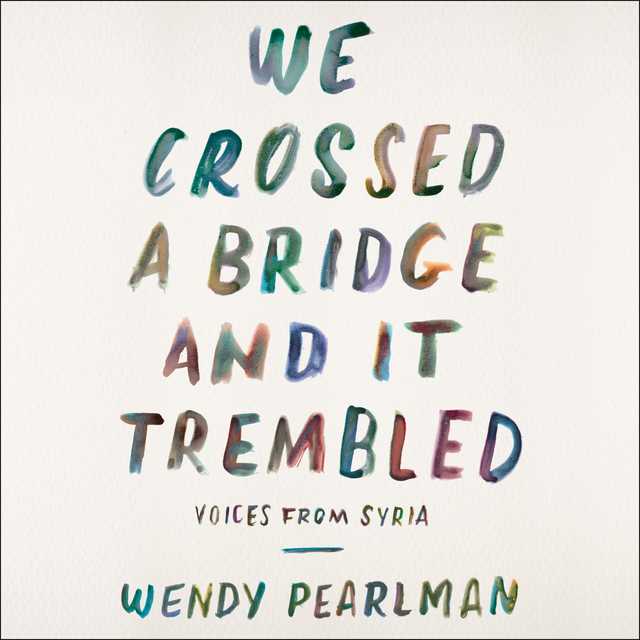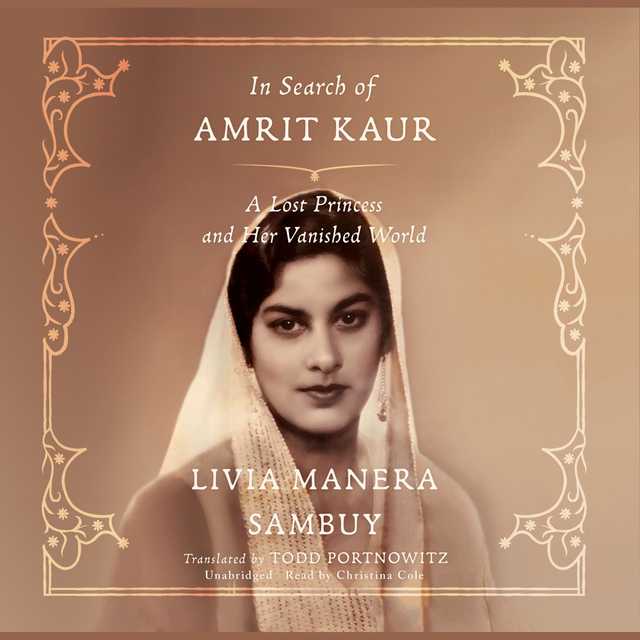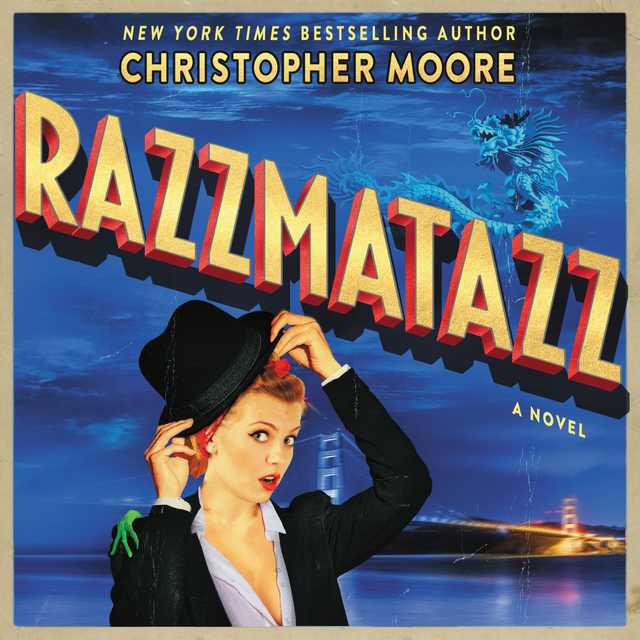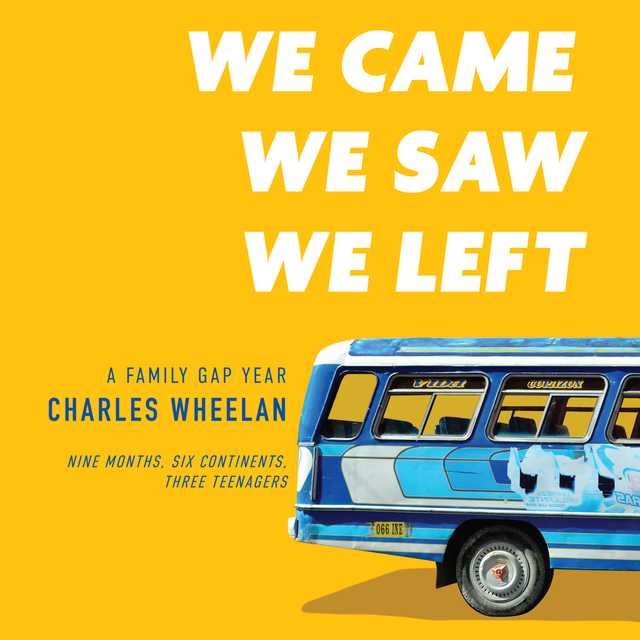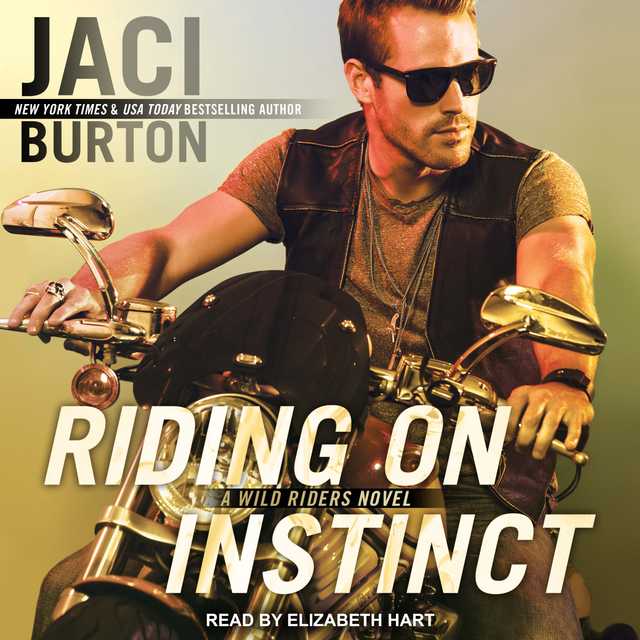We Crossed a Bridge and It Trembled Audiobook Summary
Reminiscent of the work of Nobel Prize winner Svetlana Alexievich, an astonishing collection of intimate wartime testimonies and poetic fragments from a cross-section of Syrians whose lives have been transformed by revolution, war, and flight.
Against the backdrop of the wave of demonstrations known as the Arab Spring, in 2011 hundreds of thousands of Syrians took to the streets demanding freedom, democracy and human rights. The government’s ferocious response, and the refusal of the demonstrators to back down, sparked a brutal civil war that over the past five years has escalated into the worst humanitarian catastrophe of our times.
Yet despite all the reporting, the video, and the wrenching photography, the stories of ordinary Syrians remain unheard, while the stories told about them have been distorted by broad brush dread and political expediency. This fierce and poignant collection changes that. Based on interviews with hundreds of displaced Syrians conducted over four years across the Middle East and Europe, We Crossed a Bridge and It Trembled is a breathtaking mosaic of first-hand testimonials from the frontlines. Some of the testimonies are several pages long, eloquent narratives that could stand alone as short stories; others are only a few sentences, poetic and aphoristic. Together, they cohere into an unforgettable chronicle that is not only a testament to the power of storytelling but to the strength of those who face darkness with hope, courage, and moral conviction.
Other Top Audiobooks
We Crossed a Bridge and It Trembled Audiobook Narrator
Erin Bennett is the narrator of We Crossed a Bridge and It Trembled audiobook that was written by Wendy Pearlman
Wendy Pearlman is a professor and award-winning teacher at Northwestern University, specializing in Middle East politics. Educated at Harvard, Georgetown, and Brown, Pearlman speaks fluent Arabic and has spent more than twenty years studying and living in the Arab World. She is the author of numerous articles and two books, Occupied Voices: Stories of Everyday Life from the Second Intifada (Nation Books, 2003) and Violence, Nonviolence, and the Palestinian National Movement (Cambridge University Press, 2011). She lives in Chicago, Illinois.
About the Author(s) of We Crossed a Bridge and It Trembled
Wendy Pearlman is the author of We Crossed a Bridge and It Trembled
More From the Same
- Publisher : HarperAudio
- Abraham
- American Gods [TV Tie-In]
- Dead Ringer
- House of Sand and Fog
- Prey
We Crossed a Bridge and It Trembled Full Details
| Narrator | Erin Bennett |
| Length | 6 hours 0 minutes |
| Author | Wendy Pearlman |
| Category | |
| Publisher | HarperAudio |
| Release date | June 06, 2017 |
| ISBN | 9780062675514 |
Subjects
The publisher of the We Crossed a Bridge and It Trembled is HarperAudio. includes the following subjects: The BISAC Subject Code is 21st Century, History, Modern
Additional info
The publisher of the We Crossed a Bridge and It Trembled is HarperAudio. The imprint is HarperAudio. It is supplied by HarperAudio. The ISBN-13 is 9780062675514.
Global Availability
This book is only available in the United States.
Goodreads Reviews
William
April 23, 2017
I am an elected official in a city that was designated as a resettlement community for Syrian refugees last year. To say this was a contentious issue for some people would be more than an understatement. While many community members got to work preparing to welcome our new neighbors, others reacted with fear and anger. On that side of the spectrum of public opinion there was a great deal of dehumanizing occurring. Syrian refugees were not seen as human beings. They were seen instead as a two-fold threat: a safety threat with some people worrying that someone brought here as a refugee would then engage in terrorist activities and a threat to the financial wellbeing of our established residents with wildly exaggerated numbers circulating as to how much local taxes would increase due to supporting the refugees once they arrived.The bookstore I manage stocked a large number of books about Syria, Syrian refugees, and the refugee experience in general in an effort to help facilitate community dialogue. While there are some excellent books in print on these topics, We Crossed A Bridge And It Trembled is the book I wish I could have been putting in people’s hands for the past year.Not a straight history or detailed examination of the crisis in Syria, it is instead simply short accounts from Syrian refugees themselves in their own words about the oppressive regime they lived under, the start of the process to replace that regime with something fairer and better, and how that process bogged down into the horrible humanitarian disaster it is today.This book, more than any I have encountered, preserves the humanity of Syrian refugees—highlights the humanity of Syrian refugees—and in doing so provides a great benefit to the refugees themselves and the communities working to welcome them.There is despair in these pages, and anger, and hope. As a whole it presents a welcome reminder of just how much we have in common deep down inside, whether we are refugees looking for a new start or have called our community home for many generations. I hope this book has a wide and diverse readership. I would certainly recommend it to anyone interested in gaining a fuller picture of both Syria and refugees in general. I would recommend it to anyone who hopes for a greater understanding of situations unimaginable in their own lives. This has the potential to be a powerful read for a great many people.
Alice
June 07, 2020
Educational, heartbreaking and filled to the brink with humanity.
Murtaza
May 26, 2017
This is a set of one hundred or so vignettes narrated by Syrians, talking about their own experiences before, during and after the Syrian Revolution. Syria was a country of 22 million people and anyone who lived through these incredible events will have personal stories like these, which are by their nature extraordinary. While it is not anything that will be shocking to people who have followed the uprising over the past few years, these vignettes provide a beautifully humanizing picture of a conflict that is often reduced to political wrangling, atrocities and statistics in the news. The stories are arranged in a manner which provides a chronology to the events, and that along with the fulsome introduction makes this book a vital education for the uninitiated. Many of the stories are of devastation, horror, frustration. But many others are also about hope, beauty and the transcendent desire of human beings to live with freedom and dignity. When beautiful stories and insights emerge out of such devastation, they are really something to cherish, and there are many of those here.I'm increasingly convinced that everyone in the world needs to understand the Syrian conflict in all its complexity. It is the largest war and refugee exodus since World War II and the six-year long crisis has radically reshaped the politics of the entire world. This book deserves to be spread far and wide, and it is guaranteed to touch the emotions that are often necessary to galvanize positive action.
Deborah
January 30, 2022
For years the people of Syria had been silent to the atrocities, distrust, terror, corruption, chaos, humiliations, and human rights abuses of both Hafez al-Hassad, who ruled from 1971 to 2000, and then his son, Bashar al-Assad, who became president after his father’s death. “We weren’t allowed to have a political party or a newspaper...” “Don’t talk, the walls have ears.” Fear permeated through the population and the country. In 2011 inspired by the Arab Spring, massive demonstrations and uprisings erupted throughout Syria against the regime resulting in a civil war. The government fought back brutally. These are the voices of the people describing the protests, the fight, the brutalities, the beatings, the imprisonment, the deaths, the flight, the adjustments, and their feelings of disbelief, hopelessness, sadness, despair, pain, horror, fear, hope, and courage. “This is how the revolution exploded” and “we entered a road of no return.” “People couldn’t believe their eyes.” “No longer were their voices silenced.” “The idea of being able to speak was captivating.” “And I told myself that I would never again let anyone steal my voice.” Over 570,000 people have died, 7.6 million residents have been internally displaced, and there are more than five million refugees. This book is a compilation of first-hand interviews of refugees conducted over four years. Do you want to know about Syria during these times and what ordinary Syrians think? Read this unforgettable and heart wrenching book.
Ann
June 05, 2017
This book should be required reading for everyone.
Nelson
June 10, 2021
Há bastante tempo que desejava ler algo sobre a guerra civil na Síria. Ao longo da última década vimos refugiados chegarem à Europa, alguns deles por meios de grande perigosidade — atravessando o Mediterrâneo em barcas de madeira —, daí a curiosidade natural de saber como se chega a este estado — o de colocar em perigo a vida dos próprios filhos. Passados 10 anos sobre a guerra, a escolha de obras é grande, desde trabalhos académicos de fundo que explicam o conflito desde a génese do próprio país, a romances históricos a puxar à lágrima, existe de tudo um pouco. A obra de Wendy Pearlman, “We Crossed a Bridge and It Trembled: Voices from Syria” (2017), surgiu-me em várias listas na rede, tendo folheado várias, senti que era por aqui que queria aproximar-me do conflito. Contudo, se estranhei a falta de traduções, está apenas editada em inglês e turco, mais ainda me incomodou quando acabei de ler, dado o relevo da experiência sentida em toda a sua leitura. Pearlman criou uma obra intemporal, que não fala apenas da Síria, mas do ser humano, da sua fragilidade e relação com o território, por meio da experiência direta de quem viveu naquele lugar, em cada um dos momentos relatados. Nesse sentido, é uma obra obrigatória para quem quer perceber melhor o que aconteceu na Síria, mas também para quem desejar entrar um pouco mais adentro nas complexidades da relação entre a vivência e violência humanas e a construção civilizacional.[imagem]A versão em audiolivro é ainda mais intensa, dado o bom trabalho de dramatização da vozesO livro de Pearlman segue um modelo hoje conhecido como o modelo de Svetlana Alexievich, por ter recebido o nobel em 2015, que assenta na construção de obras escritas a partir de relatos e testemunhos diretos de pessoas, as chamadas “vozes”. Pearlman é uma professora americana, com mais de 20 anos de trabalho em política do Médio Oriente, especialmente os seus movimentos sociais, refugiados e migrações. Este livro poderia ser fruto de um projeto de investigação, a recolha de testemunhos para análise posterior qualitativa da situação das pessoas que fugiram do país. Mas Pearlman optou por construir um livro para o grande público, seguindo a ideia das vozes, e assim a partir de centenas de relatos que conseguiu obter a partir de pessoas espalhadas pelo globo, construiu uma teia evolutiva dos factos da guerra. Cada capítulo representa um momento histórico da guerra, tendo nós como referência essencial os estados emocionais e visões da realidade oferecidas pelas pessoas entrevistadas. O modo como Pearlman desenhou a progressão do contar dos eventos ajuda numa primeira parte a compreender alguns porquês, depois progride para a discussão cada vez mais detalhada do campo de batalha no país, iniciando depois num crescendo o contar das fugas. Deste modo, Pearlman consegue produzir em nós um impacto emocional que vai aumentando com os relatos, cada vez mais brutais e desesperados, e nos obrigam a repensar não apenas o que se passou, e ainda passa, na Síria, mas no mundo em que vivemos. [imagem]Fotografias retiradas do The GuardianJulgo que aquilo a que acedemos por meio destas “vozes” não seria possível aceder de mais forma nenhuma. Mesmo no jogo de 2017, "Bury my Love", em que somos colocados na pele de um refugiado sírio que tenta chegar à Europa, e que gera forte empatia, não se consegue chegar nem perto da emocionalidade destas vozes. Já o tinha sentido com Svetlana, mas aqui voltou a repetir-se a ideia de que o sentir da experiência interior é algo que pode apenas ser relatado na primeira-pessoa, tudo o resto é já mera interpretação, acesso em segunda-mão. Não quero dizer com isto que temos maior acesso à verdade, por aí julgo que temos até um acesso menor, já que inevitavelmente o relatos estão condicionados pela visão pessoal e subjetiva de cada voz. Mas em termos da experiência efetiva, da vivência sentida, estes relatos são insubstituíveis. E se aqui nos dão acesso ao mais desumano que podemos imaginar, incluindo mesmo aquilo que conhecemos hoje sobre os campos de concentração da Segunda Grande Guerra, a forma como tudo se estrutura e constrói produz em nós uma experiência quase-direta, ganhando enorme intensidade, tornando o objeto de relato, pela sua acuidade, belo. Estas pessoas dão-nos a ver o pior daquilo que somos capazes, e por meio delas e do trabalho de Pearlman, conseguimos ir além na compreensão do ser-humano e da nossa presença neste planeta.[imagem]Rapaz sírio num campo de refugiados, na Grécia, mostrando os seus desenhos. À esquerda, escreveu "Europa, a terra da paz e do amor", e à direita, "Síria, a terra dos monstros".Enquanto lia, acabei pensando muito na geografia da Síria, comparando a mesma com Portugal, pensando nas fronteiras da Síria — Israel, Líbano, Iraque, Turquia e Jordânia — e na pouca paz que conheceu aquele território ao longo dos últimos milénios. Ao contrário, Portugal tem apenas fronteira com Espanha, do lado do oceano, é tudo tão distante e de difícil acesso, que pouca interação por ali surge. Deste modo, não será por mero acaso toda a paz que conhecemos por aqui ao longo dos últimos mil anos.Publicado no VI:https://virtual-illusion.blogspot.com...
Rianne
March 31, 2019
Many times I heard or saw comments on Facebook with Faith in Humanity restored. What does that have to do with a book about Syria? I will tell you what I think it has to do with it. I think it is shallow. There, one word, covering all that I think about. "Busdriver helping mom with pram into the bus." Yes? You could have done that as well? Even I have to admit that l like to read them, that it brings little smiles to my face but then when a read a book like this, my smile disappears again for a bit. I don't want to say it's bad to enjoy the little things in life, such as the twitter messages of faith in Humanity restored. But it would be nice if we all took a step like that if we were all trying to change the faith in Humanity. I have wanted to write for so long about things I see on Social Media that make me wonder: why? Why do you do this? Hate messages spread so easily and to be honest, 90% of the time they are not even right. And the reason why I needed to read this book was to understand things so much better and I am already trying to see the world from a more neutral angle, not just me, but the world. Yet I wanted to read this book to get a better understanding. I will never understand completely what it feels like and I am also not saying that I want that. But the hypocritical comments of Facebook need to tone down. I do have to admit that in the last years I do not bump into these posts as much, maybe Facebook changed, maybe I am just "there" less to see them. Which can be pretty accurate as I deleted the app on my phone to just hang out with the real world some more and to not look at all the predisposed posts. Facebook or other platforms on social media make it so easy to immediately give an opinion and I agree that is okay, after all, we (especially in The Netherlands) have freedom of speech. Why not use it? Because even if we have an opinion, I do support very badly, to state facts over your opinions. Form an opinion over the right facts. You see when I had my internship for the Council of Refugee, there was this immigrant crisis and the hate spreading on Facebook, let's say it in Facebook style: It was cry-able. Blaming the Syrians that there were no houses for the Dutch, blaming them as if they were criminals. The news totally jumping into that. So to read the other point of view, the one that should matter the most, it's cry-able in a different way. It hurts me to realize what people had to go through and I wasn't even there. It's sadness and I wasn't even there. These people had to go through so much while someone in the Western world, someone in Europe, is sitting on his or her ass, complaining on Facebook. Well excuse you, imagine what it is to leave everything behind while you just want to stay home. This writing is what made it best, different voices, chained together in a unison voice because it’s the same. It’s one country, it’s their home. It would be nice if this could be their home too. We speak about Democracy in my country as if it is a bad thing, surely not all but a big part does. That the European Union is a bad thing. I would like for all those people that think that, to come with a solution, what’s better than Democracy? Would we like a dictator? Someone that uses every other way to keep the reign for our country and to just do whatever he or she thinks it’s best? Just watching innocent people die or get tortured? I think democracy might not be bad, might need an upgrade every now or then but that still makes it democracy. And if you do not blame democracy but the European Union in general, try to come up with a solution yourself for the immigrant crisis. Because people are still out there, waiting for the procedure to start, normally it would be 8 days now it might be closer to one and a half year. Is it so much to ask, to look outside your own box, outside your own house, province, state and see with open eyes what is going on? You don’t have to come up with a solution, you just take that one step and become your own Faith in Humanity restored.
Miina
September 19, 2018
I've been trying to follow the developments in Syria for some time, but have not had a clear understanding of what exactly started the war and how it all evolved to the current state. This book did an outstanding job of explaining the history, the oppression, the revolution, the war, and the refugee crisis. The book consists of interviews with ordinary Syrians and their stories are so powerful, moving, and heartbreaking. Strongly recommend!
Katie
February 16, 2019
We Crossed A Bridge and It Trembled is one of those books that I will recommend over and over again. Wendy Pearlman did an outstanding job of putting together a collection of stories that represent Syria and give actual Syrians a voice. This is so different from most books I've read on the topic as it is comprised of primary, not secondary sources. We Crossed a Bridge and It Trembled brings reminds us of the human element of the conflict that is so often lost in news reports that contain only statistics and not human stories. From the first story, I knew this book would have a huge impact on me. "A Syrian citizen is only a number. Dreaming is not allowed." Those two sentences, from Fadi (Hama), are the first of many powerful reflections on life leading up to the war and during the war. While I will never truly be able to comprehend the anger, frustration, and fear that so many Syrians have felt, these stories help me understand those feelings a little bit more.I am in awe of the work that Wendy Pearlman put into writing this book. She conducted interviews in Arabic, divided the book into eight themes (Authoritarianism, Hope Disappointed, Revolution, Crackdown, Militarization, Living War, Flight, and Reflections) that represent Syria's path towards civil war and the effects of the war. Pearlman talked to people from all over Syria, from all walks of life, and from all view points. Pearlman's effort to give Syrians a voice gave this book so much legitimacy.We Crossed a Bridge and It Trembled is so important in a time when so many refugees, especially those from the Middle East, are demonized. Pearlman's stories show that Syrians have hopes for their country and are willing to risk so much to give future Syrians a better country.
Raven
August 04, 2017
This book is heartbreaking. I believe this is an important global novel that should be read by all. To hear the voices of Syrians through the translations of Wendy Pearlman brings their tragedy to a place where I can connect. We have so much turmoil and hate in this world that I'm ashamed to say I become numb to a lot of it. But this book has helped me to open my eyes and my heart to Syrians who have been scattered across the globe. We have to stand with them. Read this book if you care about the future of humanity and our global conscience. Hell, read this book if you're a person with a heart.
Cari
June 17, 2018
What can I say about We Crossed a Bridge and It Trembled: Voices from Syria when it has rendered me so speechless?I know I will sound ignorant when I say this, or like I live inside of a nice little bubble that blocks out everything that is ugly in this world, but I had no real idea what all has been going on in Syria for the last several years. Did I know things were bad? Of course I did, but my eyes were closed to the extent and longevity of the suffering occurring within the Syrian borders... My eyes have now been opened and open they stayed, late into the night last night: staring at the ceiling, unable to sleep after reading about so much despair. My eyes are open and I selfishly wish I could unsee. I'm so sad and so angry and I don't know what to say. We Crossed a Bridge and It Trembled is comprised of the testimonies of the three-hundred Syrian refugees Wendy Pearlman interviewed over the course of four years, on two different continents. The stories of these ordinary people-- mothers, fathers, daughters, sons--told of extraordinary pain and together formed a complete narrative of a war torn nation. Pearlman divided the book into eight sections that take the reader through the devolution of Syria under the dictatorship of President Bashar Assad. These Syrian voices, belonging to doctors, teachers, engineers, students, soldiers; paint a vivid picture of the hunger for revolution that led to political protests and the collusion of power that eventually ignited Syria into a civil war, thereby fueling the emergence of ISIS and causing the eventual mass exodus of Syrian refugees across Asia and Europe, where their plight continues.This should be required reading for all of humanity. "A lot of people were opposed to the way things were, but no one protested. You just adapted to the oppression and rotted along with it. And then--in one second, in one shout, in one voice--you blow it up. You defy it and stand in front of death. You have an inheritance, and after thirty years, you slam it on the ground and shatter it." --Cherin, a mother from Aleppo"I was in a demonstration. Others were shouting and I joined them. I started to whisper, Freedom. And after that I started to hear myself repeating, Freedom, freedom, freedom. And then I started shouting, freedom! My voice mingled with other voices. When I heard my voice I started shaking and crying. I felt like I was flying. I thought to myself 'This is the first time I have ever heard my own voice.' I thought, 'This is the first time I have a soul and I am not afraid of death or being arrested or anything else.' I wanted to feel this freedom for ever. And I told myself I would never let anyone steal my voice again. --Rima, a writer from Suwayda"This is when we lost our humanity. I'd open my phone and look at my contacts and only one or two were still alive. They told us, 'If someone dies, don't delete his number. Just change his name to Martyr'. That way, if you got a text from that number, you knew that someone else had gotten hold of the phone and might be using it to entrap you.So I'd open my contact list and it was all Martyr, Martyr, Martyr." --Amin, a physical therapist from AleppoHow do you get these voices out of your head and heart? The answer is simple: You don't.
David
March 12, 2020
This will be a short review as this is not my typical book and I am not sure how useful my thoughts on it will be. I choose to read this book as I am working on a novel right now that has a Syrian refugee as a main character. So this was the first of a couple of books and documentaries I read/watched in order to get a feeling for the conflict and the people. It taught first and foremost that even as a person who follows global political issues I didn't know 1% of what I thought I did. The author Wendy Pearlman is an academic from Northwestern university but she speaks the local languages and has years of studies in the middle east.Drawn from interviews with over 300 refugees over a four year span this is a really great way to get a full picture of the conflict and history in the region. Pearlman of course not only had to earn the trust of the people she was interviewing she had to pick and assemble the best and most important stories. Then she had to format them into a solid story. All this was well done. It is clear and concise which is no minor task when you consider that it is one of the most confusing and hard to understand conflicts going on currently. Russia, Kurds, Assad, Isis, Americans, and various homegrown aspects of the conflict. Lots of information to put together and thankfully it is well done.I wish every conflict had such an easy to digest history. It is helpful. One thing it gave me has increased compassion for the refugees and the terrible position Assad has put them in. It is amazing that that piece of shit is willing to put his whole region in misery just so he had held on to power. The opposite of a leader. Unbelievable that people in country continue to fight for him.So yeah I learned many things and I hope it will be reflecting in the finished product of my book.
Most Popular Audiobooks
Frequently asked questions
Listening to audiobooks not only easy, it is also very convenient. You can listen to audiobooks on almost every device. From your laptop to your smart phone or even a smart speaker like Apple HomePod or even Alexa. Here’s how you can get started listening to audiobooks.
- 1. Download your favorite audiobook app such as Speechify.
- 2. Sign up for an account.
- 3. Browse the library for the best audiobooks and select the first one for free
- 4. Download the audiobook file to your device
- 5. Open the Speechify audiobook app and select the audiobook you want to listen to.
- 6. Adjust the playback speed and other settings to your preference.
- 7. Press play and enjoy!
While you can listen to the bestsellers on almost any device, and preferences may vary, generally smart phones are offer the most convenience factor. You could be working out, grocery shopping, or even watching your dog in the dog park on a Saturday morning.
However, most audiobook apps work across multiple devices so you can pick up that riveting new Stephen King book you started at the dog park, back on your laptop when you get back home.
Speechify is one of the best apps for audiobooks. The pricing structure is the most competitive in the market and the app is easy to use. It features the best sellers and award winning authors. Listen to your favorite books or discover new ones and listen to real voice actors read to you. Getting started is easy, the first book is free.
Research showcasing the brain health benefits of reading on a regular basis is wide-ranging and undeniable. However, research comparing the benefits of reading vs listening is much more sparse. According to professor of psychology and author Dr. Kristen Willeumier, though, there is good reason to believe that the reading experience provided by audiobooks offers many of the same brain benefits as reading a physical book.
Audiobooks are recordings of books that are read aloud by a professional voice actor. The recordings are typically available for purchase and download in digital formats such as MP3, WMA, or AAC. They can also be streamed from online services like Speechify, Audible, AppleBooks, or Spotify.
You simply download the app onto your smart phone, create your account, and in Speechify, you can choose your first book, from our vast library of best-sellers and classics, to read for free.
Audiobooks, like real books can add up over time. Here’s where you can listen to audiobooks for free. Speechify let’s you read your first best seller for free. Apart from that, we have a vast selection of free audiobooks that you can enjoy. Get the same rich experience no matter if the book was free or not.
It depends. Yes, there are free audiobooks and paid audiobooks. Speechify offers a blend of both!
It varies. The easiest way depends on a few things. The app and service you use, which device, and platform. Speechify is the easiest way to listen to audiobooks. Downloading the app is quick. It is not a large app and does not eat up space on your iPhone or Android device.
Listening to audiobooks on your smart phone, with Speechify, is the easiest way to listen to audiobooks.

